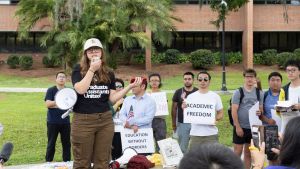Between Poetics and Utility: Landscape Infrastructure in China
‘You use a literal translation of landscape architecture in Hong Kong!’ Colleagues from mainland China often exclaim after dutifully examining my business card. Indeed, the use of the phrase 园境建筑 (yuan jing jianzhu) in Hong Kong betrays its British origins and North American influence. Yuan can be translated into park or garden, jing is the […]















